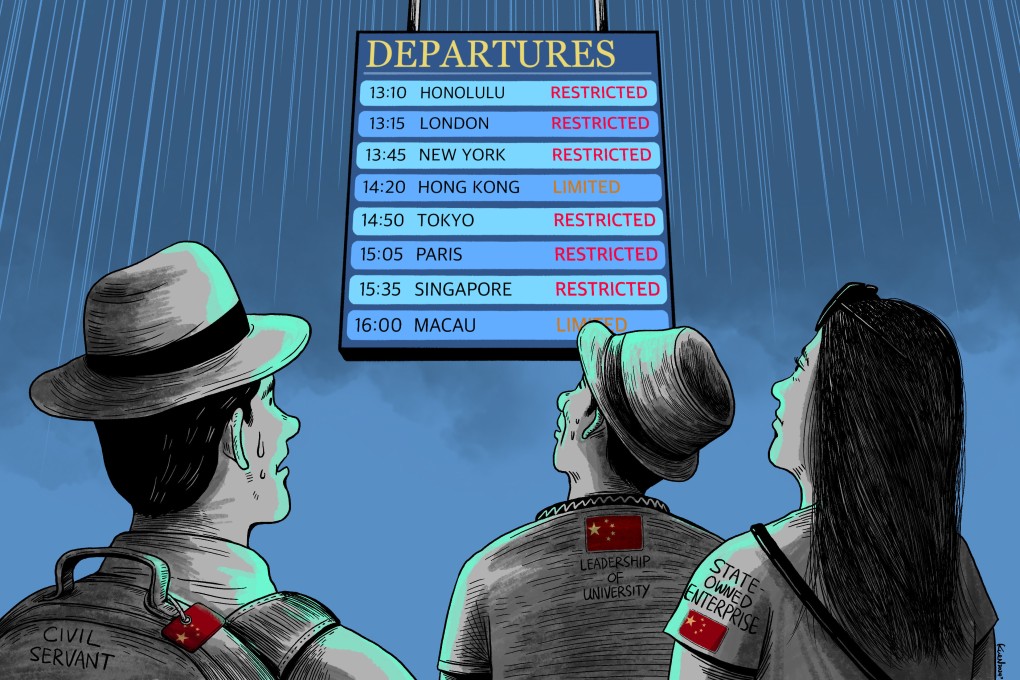China’s expanding travel curbs are cutting off more state workers from the rest of the world
- Workers in the state sector and beyond face stiffer overseas travel barriers as authorities try to reduce corruption and spying risks
- Experts say tightened grip on private travel is at odds with Beijing’s post-pandemic narrative of improving people-to-people foreign exchanges

In 2011, Matthew, then a junior official in one of China’s most powerful finance ministries, treated himself and his bride to a two-week honeymoon at the resort destination of Maui, in the Hawaiian islands.
Near the end of their stay, he assured his new wife that they would travel to a different country each year to celebrate their special day, a promise he would never be able to keep.
While it was not uncommon a decade ago for Matthew and other Chinese officials like him to travel abroad for leisure, their counterparts in 2024 are under much tighter travel restrictions, where Hawaiian honeymoons are out of the question.
Matthew’s promotions over the past few years have not helped to satisfy his wanderlust, because in China, when officials like him ascend the ranks, restrictions on activities like travel become tighter.
The restrictions, which in some cases resemble outright bans, have come into sharper focus in the past decade as Beijing seeks to neutralise a widening range of risks, including preventing corrupt officials from fleeing abroad, thefts of state secrets or threats from foreign spies.
Just as Beijing sought to re-engage with the rest of the world after three years of strict border controls under Covid-19, restrictions on a large group of personnel employed in the state sector – who are highly educated, relatively affluent and central to public life – have continued to tighten.
